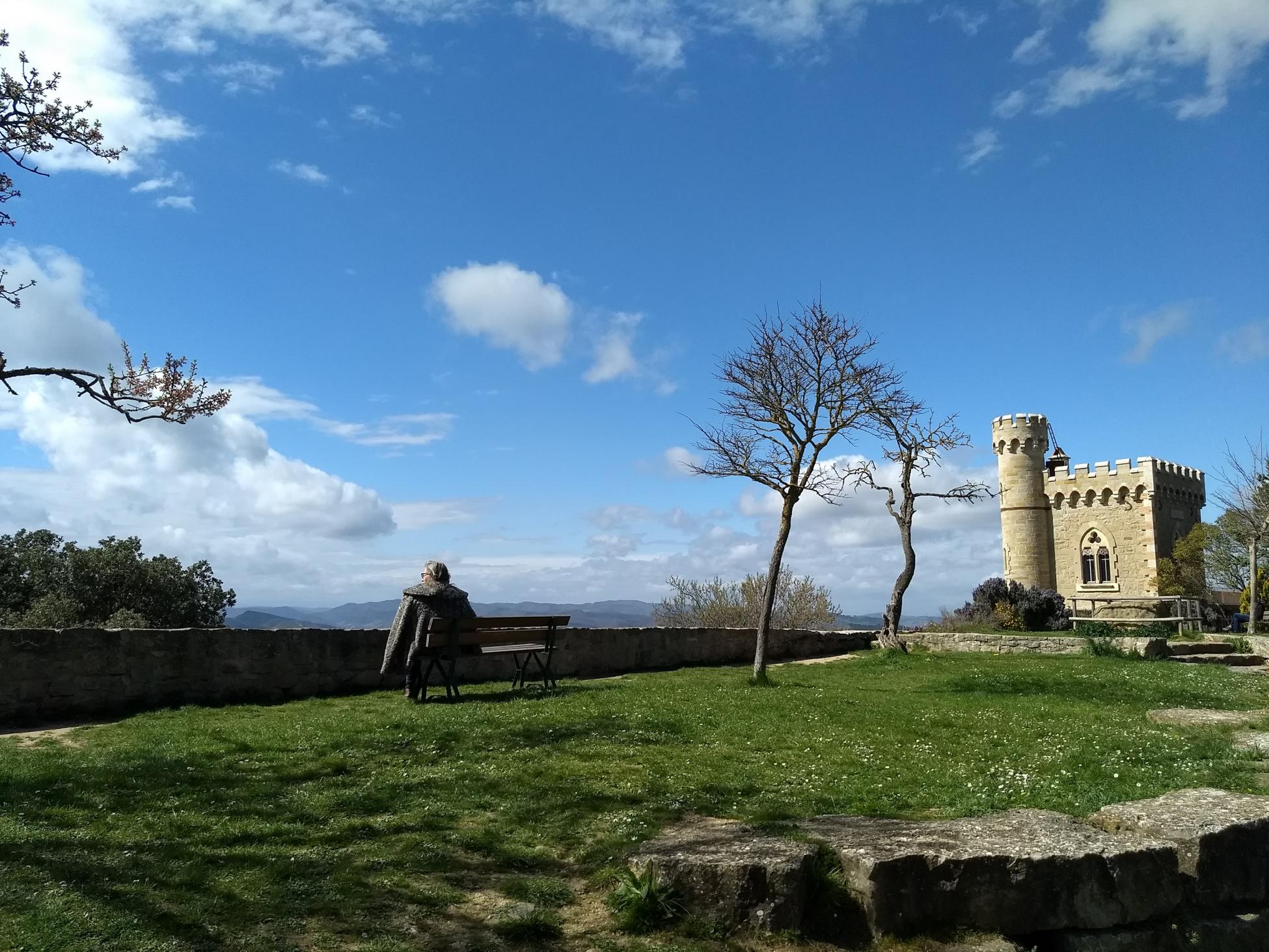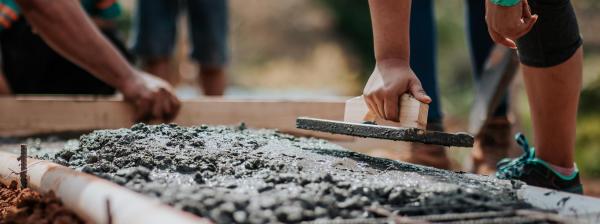During the past month of volunteering at Yobaba Lounge in France, our Workaway host, Gertrud, has shared her yoga and mindfulness practice with us.
Recently, I sat down with Gertrud to ask her about what it's like to run a retreat, how she got started and what it's like to host foreign volunteers.
What was your life like before Yobaba Lounge?
I grew up in Germany, immigrated to Australia, ran away from Australia at the age of 18, and ended up in Europe doing fencing for the Australian team with my to-be first husband. We travelled around from competition to competition until I was 30.
Fencing was my passion and I taught myself how to type in the days before computers. I ended up married, stopped fencing and spent the next 15 years having children and running my dot-com business. I got deeply depressed.
How did you begin running yoga retreats?
A friend of mine said to me, “Gertrud, you need to do yoga retreats.”
I said, “I hate yoga.”
She said, “Don’t worry. Just do it! I’ll find you a yoga teacher. You just do the retreats and cook.”
I said, “I hate cooking.”
She said, “Shut up. Just do it!”
So, I did. I gave myself a challenge to cook food without meat, dairy, gluten or sugar. I started to add flowers and make the food raw for the colours. I ended up really enjoying it and the retreat was a success.
For the next retreat, I found a yoga teacher who introduced me to proper retreat format. I started to have my own yoga practice. When we parted ways four or five years ago, I started to teach the yoga and do the food.
I started just at the right time before the wave of retreats really hit. I was lucky to have a respected journalist come on one of the first retreats. She loved it and wrote a couple of really good articles. Now, the house pays for itself and I just about make a living.
What advice would you give to someone who is hosting a retreat for the first time?
My retreat format is a strong structure with silence, no alcohol and no sugar. It can put people into a bit of a pressure cooker and bring stuff out. When you have a group dynamic of people being challenged, especially with all the yoga work and silence, people can have difficulty dealing with it.
You have to be aware of your responsibility as the host to not let yourself get triggered or take on their problems. Be compassionate in support, but make sure they find their way back to themselves to remember they are making the choice to be there.
What advice do you have for those looking to teach or share their practice?
First, you want to understand why you want to teach. What is behind all of that? If you’re doing it because you have a feeling or a practice that wants to speak out from you, do you really need permission from someone else? My supervisor, who was a Buddhist monk, gave me the best advice. He said, “You can teach as long as you teach what you know. Do not teach what you think they want to hear. Only teach what you know. Only speak from your heart.”
My yoga practice is a very feminine approach to yoga. It’s very connection-based. It’s about the connection we can establish with our inner consciousness and self. I talk a lot about the physical edge in yoga. Edges are powerful because there is a bit of resistance at an edge. You hit a resistance and suddenly you can feel it. When you get to know it, you realize there is no difference between the physical, energetic, emotional, or spiritual bodies we work with.
"The retreats end up revealing things to me. It’s part of my journey. Without the retreats I wouldn’t experience these things. It's magical."
This yoga has been a massive journey for me. And I must say, every retreat is for me. People come, but it ends up revealing things to me. It’s part of my journey. Without the retreats I wouldn’t experience these things. It’s magical, really.
What are the primary roles for the volunteers on a retreat?
The retreat season runs beginning of May to end of October. Beforehand, volunteers do renovation work and a bit of gardening. During the season, volunteers maintain the house and are around to support retreat participants.
The big thing is preparing three meals a day. The food is quite intensive, but it’s fun! We enjoy the food. We take pictures and make things up on the go. I must say, all the volunteers walk away being able to cook and enjoying the food. That’s beautiful for me to see the interest and joy they get from the food.
How can volunteers best communicate their skills to you when reaching out?
I tend to trust my intuition. I typically host three volunteers and when I put the Workaway profile live—which is where I advertise the opportunities—I get a lot of requests. I also get people who email me out of the blue, but I tend to be less open to this.
It helps me to know what you enjoy offering and why you think Yobaba Lounge would work for you. This lets me assess if I can deliver what you want. I also need to get the sense that you’re interested less in the physical aspect of yoga and more in the journey of self-discovery.
This conversation has been edited and condensed for clarity and length.





